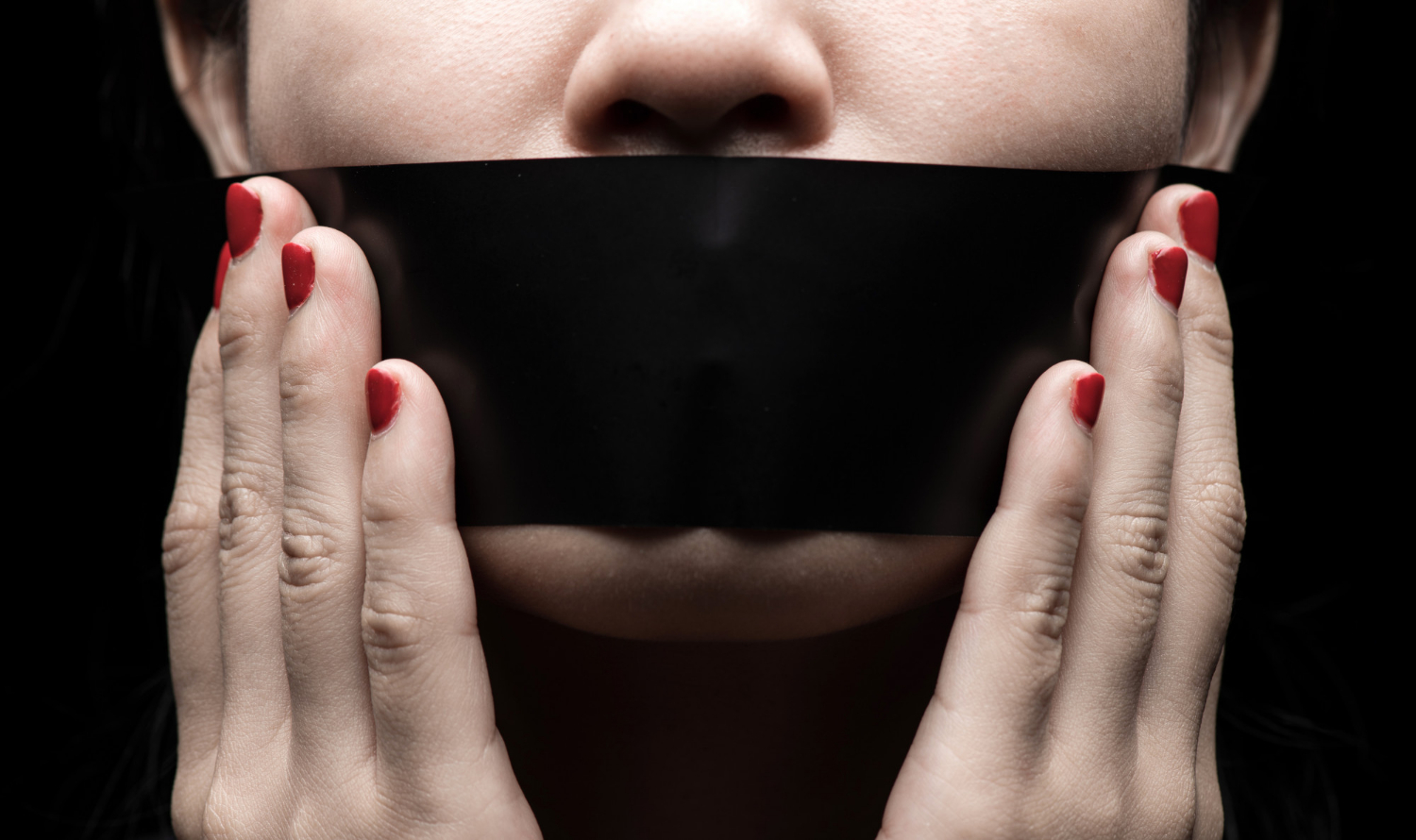
The Eroticism of Fear: A Surprisingly Sensual Dialogue
Have you ever considered fear as being sexy? It may seem like an odd concept, but the connection between fear and eroticism is a topic worth exploring. In this article, we delve into the intriguing relationship between these two seemingly opposing emotions, uncovering a surprisingly sensual dialogue that may just change the way you view fear forever. Let’s explore the enticing allure of fear and how it can add a whole new level of excitement to our lives. Let’s dive in!
1. Exploring the Impulse of Fear in Sensual Experiences
When we delve into the riveting world of emotions, we often find fear and sensuality residing at the extremes. Yet, there’s a peculiar intimacy between these two, potent enough to take us on an unexpected adventure. Here, we are not speaking of fear-induced by violence or mindless horror, but rather a subtle, controlled narrative that teases your senses, leaving you in a delightful state of anticipation.
Just consider the sheer exhilaration of a roller coaster ride or the odd allure of a suspense thriller – we universally relish these experiences even when they provoke fear. This forms the crux of our discussion, how fear, when framed within safe boundaries, can invigorate our sensory perception and intensify our experiences tenfold.
2. Discovering the Unexpected Connections between Fear and Eroticism
In our exploration of the fascinating, yet paradoxically potent relationship between fear and desire, we stumble upon seemingly contradicting emotional forces. Within these polarities lay unexpected connections that both surprise us and ignite our curiosity. As we delve deeper, we often find fear, shrouded in its ominous cloak, tucked away in the shadowy corners of eroticism.
On the surface, fear and desire appear to operate in two entirely different realms. Yet, beneath the surface, like hidden currents, they swirl together, creating a unique and captivating dance. At times, it is the fear of the unforeseen or the unknown in amorous scenarios that sparks the flame of arousal. Simultaneously, certain aspects of eroticism may often evoke a sense of fear – a fear that ironically, could heighten the very feelings of desire it incites.
The phenomena of love and fear colliding creates an intense emotional cocktail that throws us off the familiar paths of pure bliss or terror. This compelling duality may be unsettling, yet it opens doorways to the exploration of untouched mental and emotional landscapes. Remember, it is within these hidden corners we often find some of our most profound insights and experiences.
3. How Fear Intensifies the Sensuality in Human Interactions
Peel back the layers of any meaningful interaction, and you’ll discover a spectrum of emotions, fear being a prime denominator. What’s intriguing is how this dread laces and amplifies the sensual essence of human relationships. Fear, in this context, is not a negative force; rather, it’s the catalyst that intensifies the thrill of the encounter.
Fear can manifest in various forms: the shiver down your spine upon meeting someone mysterious, the flush of anxiety sinking in as you lock eyes, and the heart-pounding anticipation of a first touch. In these instances, fear and sensuality aren’t just linked; they’re inextricably intertwined. They amplify each other beyond comprehension, leading to a highly sensual experience.
- The fear of the unknown creates a mystifying aura that sparks curiosity and desire.
- Anticipation invokes a thrilling form of fear that heightens sensory perception.
- The vulnerability involved in fear leads to a deepened sense of intimacy.
It’s imperative to understand that this is not about negative or harmful fear. Instead, it’s about those fleeting moments of apprehension that flavor our interactions and make them all the more engaging. By embracing this, we can allow ourselves to indulge in intensifying the sensuality of our human interactions.
4. Harnessing the Power of Fear for Unique Sensual Encounters
Embracing fear as a part of your intimate moments can lead to some genuinely sublime experiences. This doesn’t mean indulging in horror movie marathons or living a real-life nightmare, but rather taking advantage of the increased sensitivity that fear brings. Since fear boosts our senses, when we use it consciously and safely, we can enhance the sensory experience to a level we’ve never imagined.
The thrill of the unknown is a universal feeling that ties closely with both fear and sensuality, causing adrenaline rushes and faster heartbeats. When you introduce elements of suspense or surprise in your private moments, you transform them into an intense sensory journey. Whether it’s introducing a new prop, trying a different setting, or role-playing totally different characters, these bring forth the thrill of the unknown, engaging fear in service of passion.
In addition, exercising mild but safe forms of fear maintains the excitement at a peak without causing actual distress. A delicate balance is vital here; you should always respect boundaries and never compromise safety. Remember that the goal is to use fear to enhance sensuality rather than induce it through discomfort. This shift can inject a fresh perspective into your intimate moments, creating unique sensual encounters steered by the power of fear.
5. Cultivating a Safe Space for Tapping into the Eroticism of Fear
As with any exploration into the depths of emotion and experience, it’s crucial to uphold a safe and respectful space. It’s all the more important when that exploration incorporates the thrilling edge of fear intertwined with sensuality. In this realm, we can unmask our deepest, most primal instincts, allowing us to probe into an unmatched intensity. However, remember, it’s not about inflicting pain, unwanted fear, or distress.
To achieve this, start with open and honest communication. Articulate your desires, limits, and safe-words. It’s about negotiating a shared adventure that is both exhilarating yet respectful, and above all, consensual.
- Trust is imperative. Instil confidence in each other’s boundaries and respect them.
- Consider employing a ‘safe word’, a clear signal when things might cross into the discomfort zone.
- Aftercare is equally essential. Gentle reassurances can help return to baseline from the elevated sensory experience.
Remember, unveiling the eroticism of fear doesn’t mean crossing personal boundaries. It solely aims at teasing out that electric mix of fear-fuelled passion sensibly and considerately. Ensuring a ‘safe space’ can render this journey into fear-based arousal exhilarating, rewarding, and incredibly bonding.
Q&A
- Is the feeling of fear truly related to eroticism?
Yes, believe it or not, there’s a deep-rooted connection between fear and eroticism; with adrenaline and arousal being close physiological cousins. - How does fear play into our sensual experiences?
Fear, as an intense emotion, can heighten senses, making every sensation – even of a sexual nature – more intense and memorable. - Can fear become a turn-on or fetish for some people?
Absolutely, some people find fear to be a potent aphrodisiac. As with any kink or fetish, consent and safety are crucial. - What does “the eroticism of fear” imply?
It basically refers to the heightened emotional and sensory response that fear can elicit, which in turn, can increase sexual arousal and attraction. - Does this mean horror movies can be a great date night option?
Potentially yes, if both parties enjoy them. The suspense and fear can lead to a higher level of closeness and physical contact. - Is it wrong or abnormal to feel aroused by fear?
Not at all, it’s just another way the human body and mind interact. As long as it’s consensual and safe, it’s perfectly normal.
The Conclusion
In conclusion, fear and eroticism have always been strange bedfellows, yet surprisingly, they have a distinct and indisputable connection. Shining a light upon the more shadowed corners of human nature, it’s fascinating to speculate on the reasons behind this interesting relationship. Perhaps it is due to a heightened sense of arousal that fear brings or the intrigue of stepping beyond traditional boundaries. Understanding this connection isn’t about labeling things right or wrong, immoral or good; but simply analyzing our deepest instincts that coalesce to construct our notions of pleasure. The conversation surrounding the eroticism of fear is vast, and whether you find it deeply compelling or mildly disconcerting, there’s no denying it’s an enriching dialogue worth exploring.
References:
- Freud, Sigmund. “Three Essays on the Theory of Sexuality.” (1905).
- Lacan, Jacques. “The Four Fundamental Concepts of Psychoanalysis.” (1978).
- Kristeva, Julia. “Powers of Horror: An Essay on Abjection.” (1982).
- Zizek, Slavoj. “Looking Awry: An Introduction to Jacques Lacan Through Popular Culture.” (1991).
- Creed, Barbara. “The Monstrous-Feminine: Film, Feminism, Psychoanalysis.” (1993).
- Fisher, Mark. “The Weird and the Eerie.” (2016).
- Arnd-Caddigan, M., & Pozzuto, R. “The Interplay of Gender/Race/Class/Religion/Sexual Orientation.” Journal of feminist family therapy (2008, p. Möller, H. & Paglia, C. “Eroticism, Morality, and the Controversy over Eli Roth’s Films.” Journal of Film and Video (2010).
- “Neurobiology and Ordained Ministry.” PubMed Central (PMC) (2012).
- “Fear produces sexual desire”. Journal of Interpersonal Violence (2013).
- “The Neural Bases of Emotion Regulation”. ScienceDirect (2015).
- “Mapping the Erotic Brain”. Department of Psychology, University of Essex (2017).






